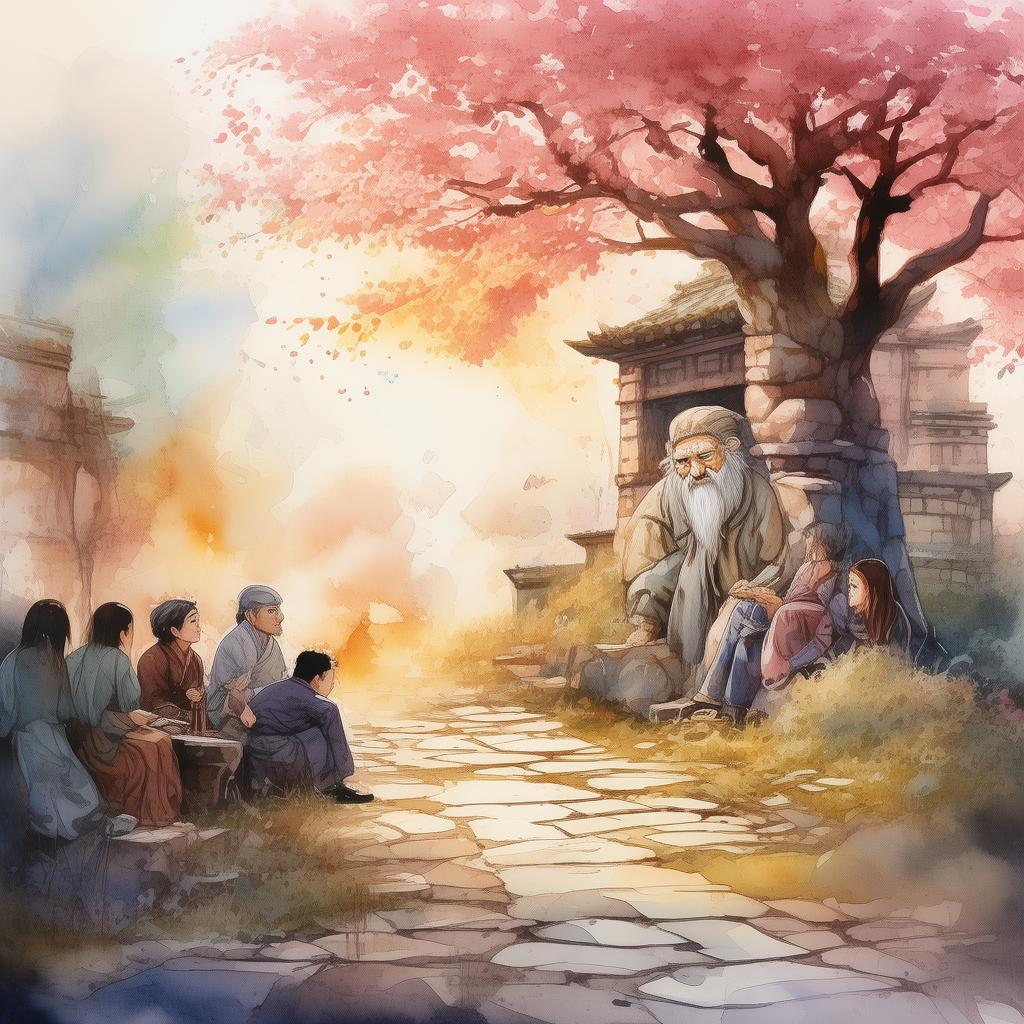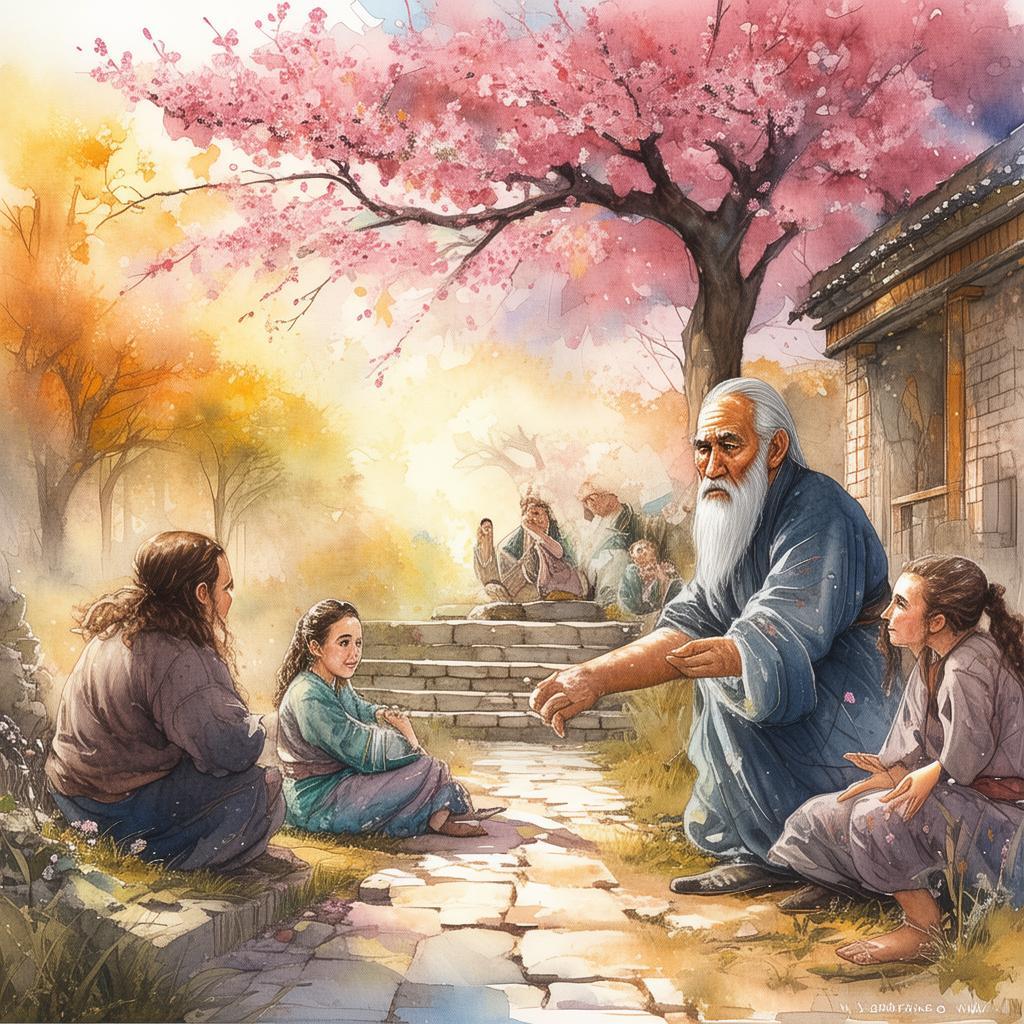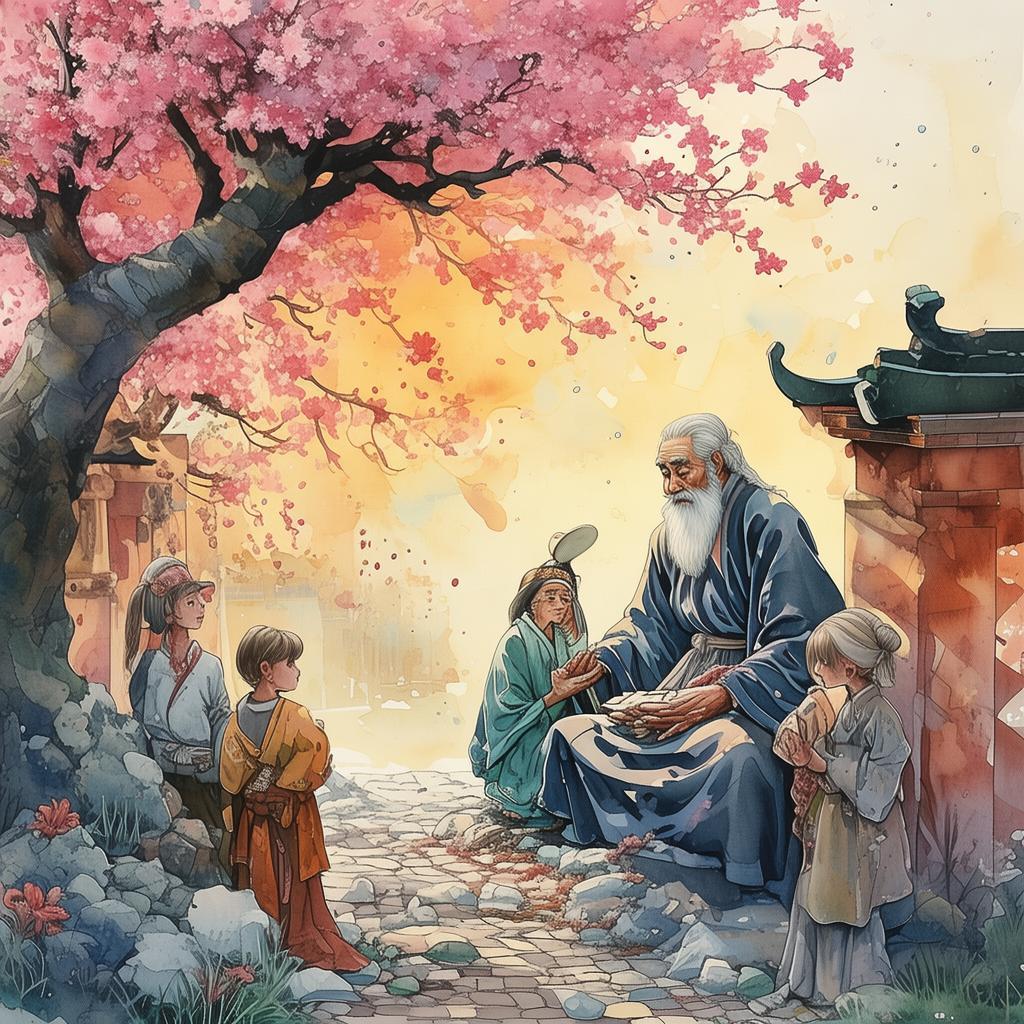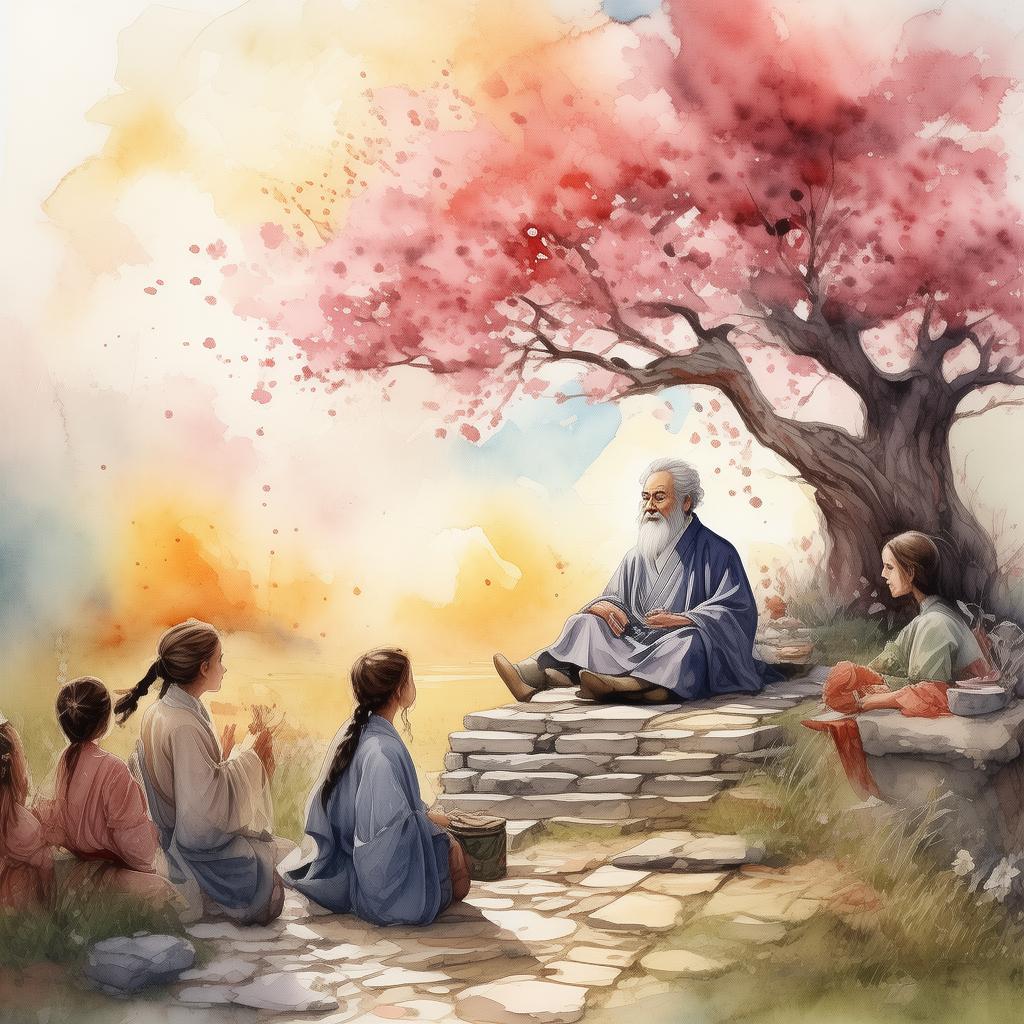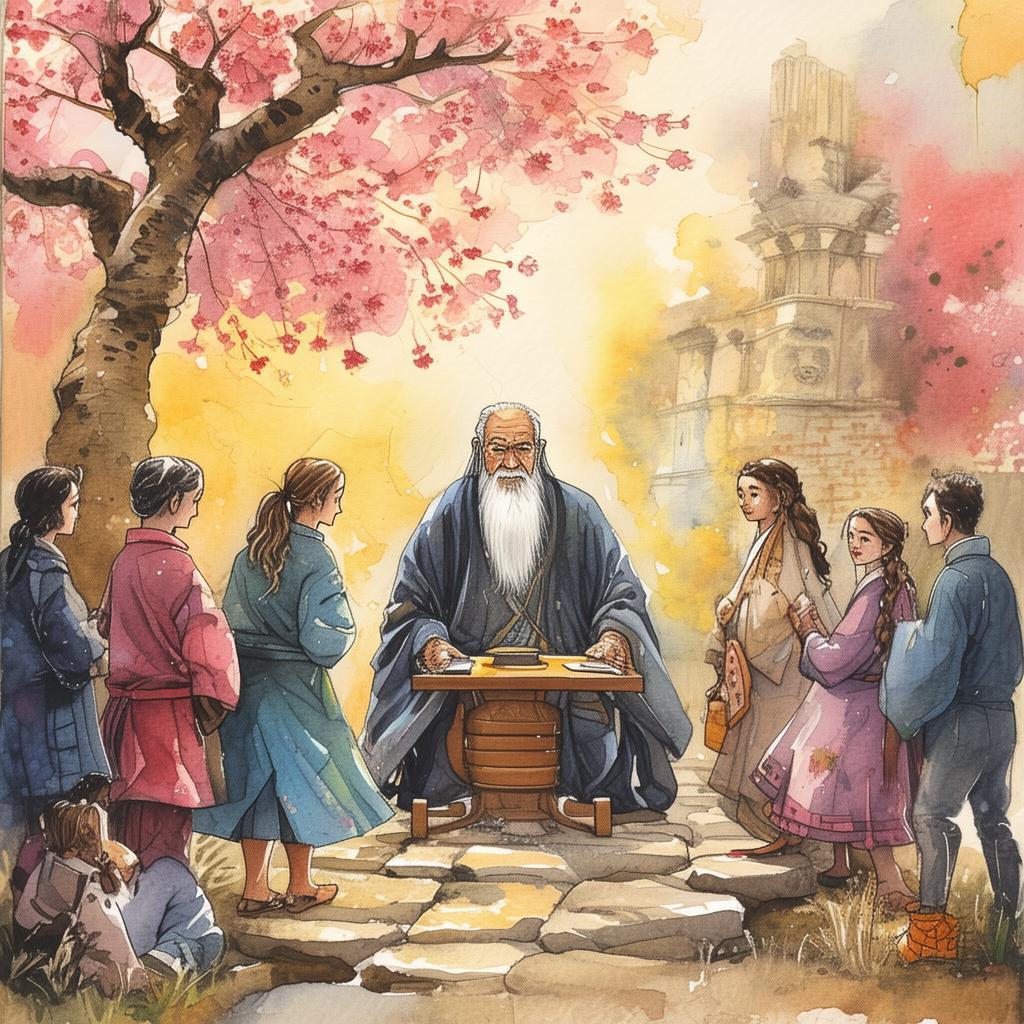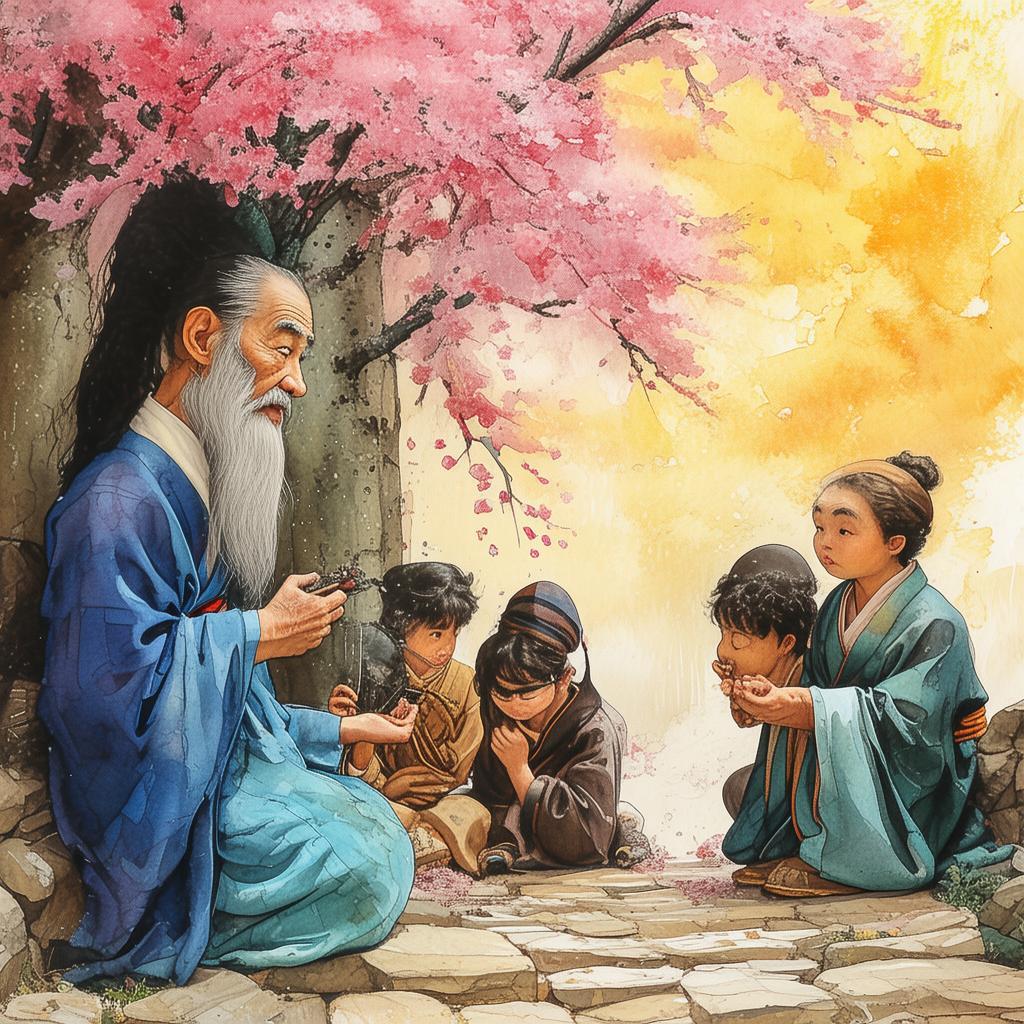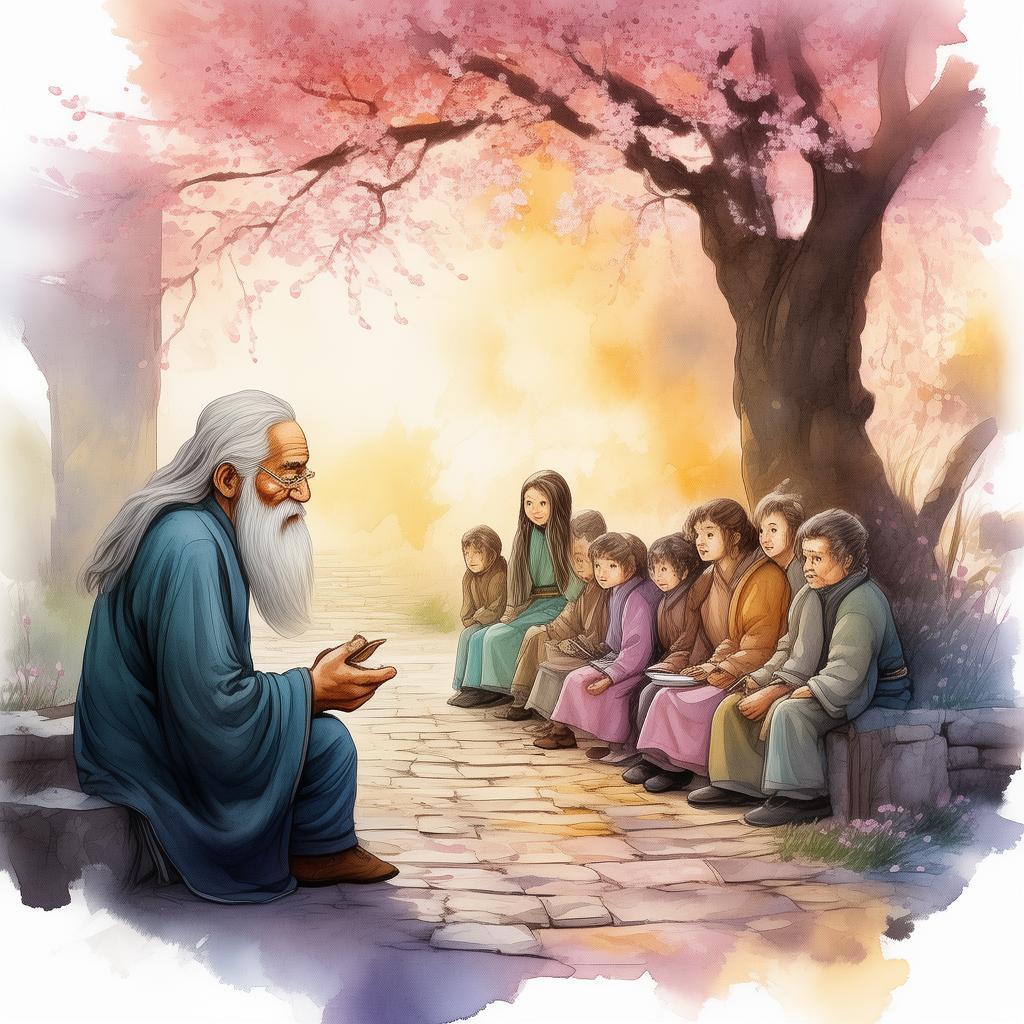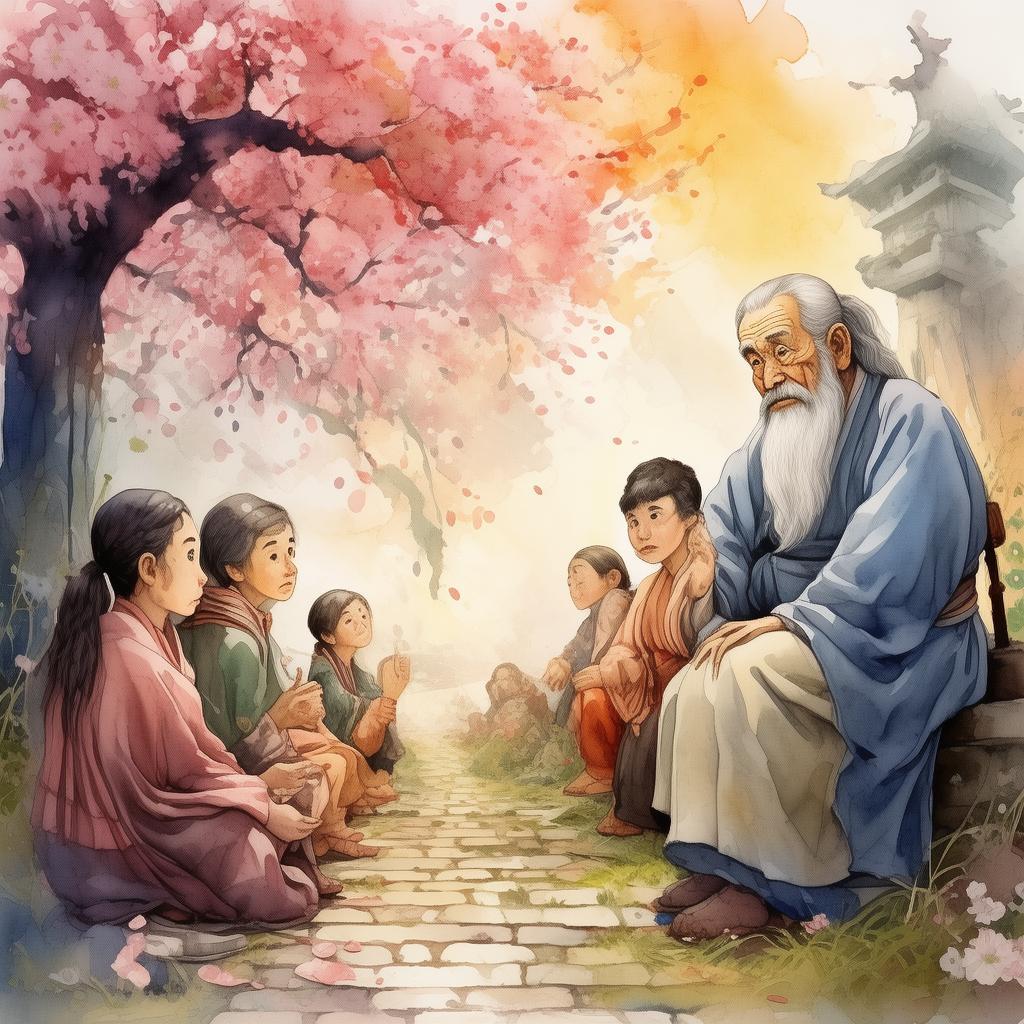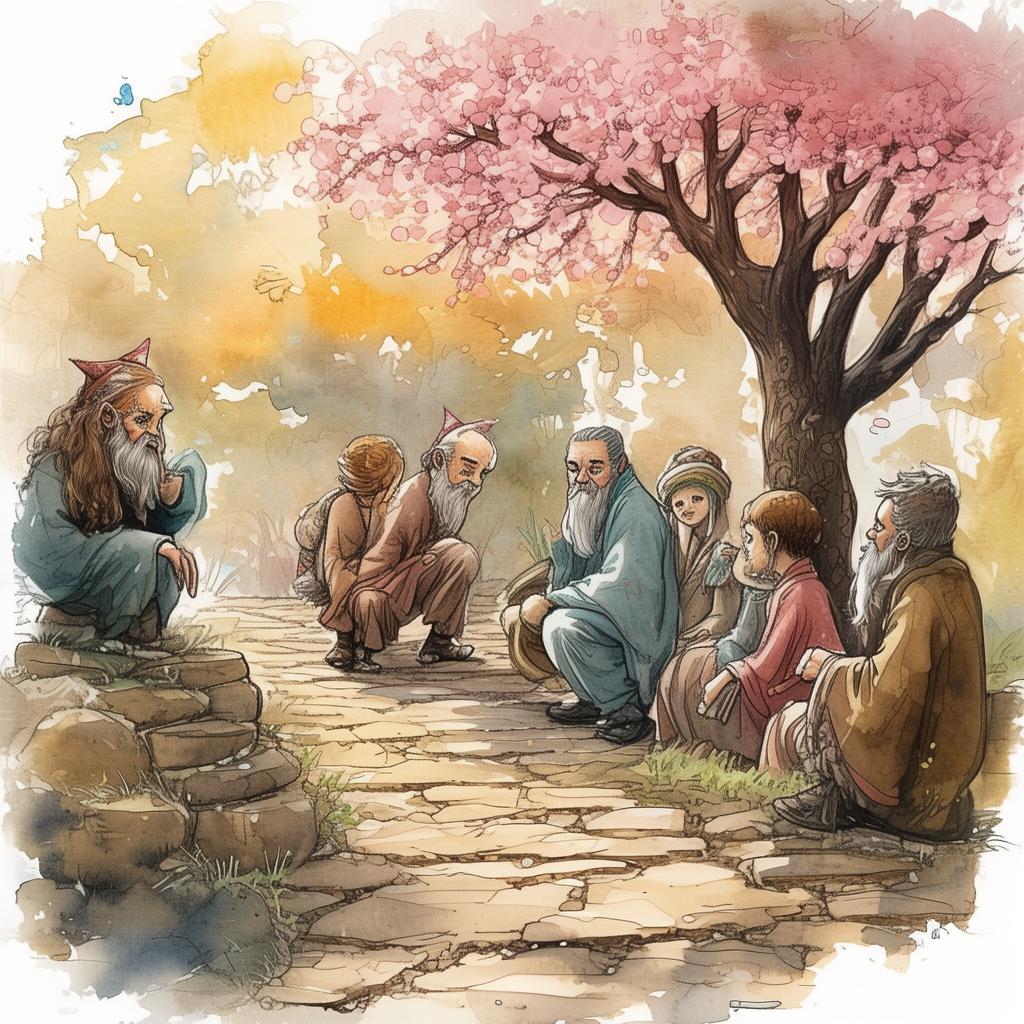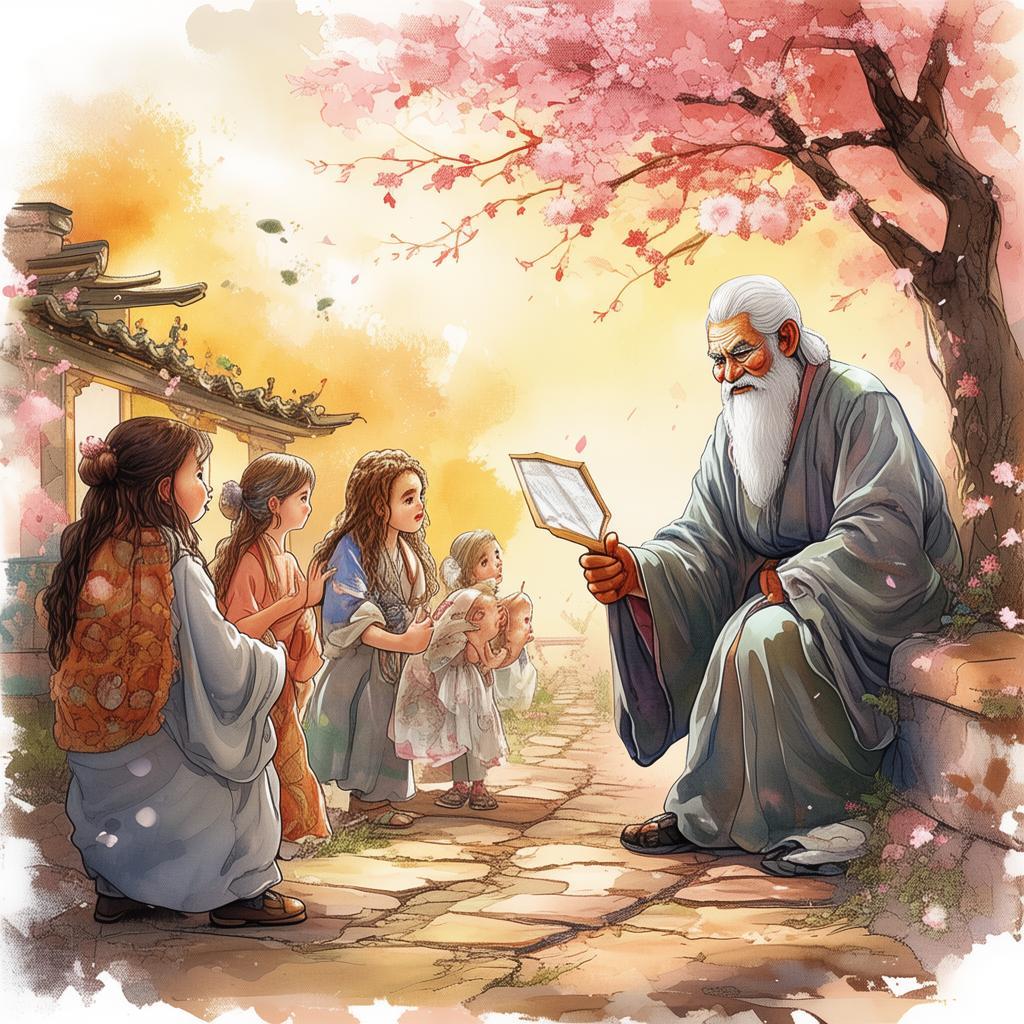The Bard's Melody: A Journey Through Time and Echoes of the Past
In the heart of ancient China, there stood a grand palace, the epitome of imperial elegance and culture. Within its walls, a bard named Lü lived and worked, his fingers dancing across the strings of his guqin, a traditional Chinese lute. Lü was no ordinary musician; he was a keeper of stories, a bridge between the ancient and the modern, a time-traveling bard.
One evening, as the moon hung low in the sky, casting a silver glow over the palace grounds, Lü felt a strange sensation. The strings of his guqin seemed to hum with an energy that was foreign yet familiar. With a deep breath, he plucked a single note, and the sound echoed through the ages, resonating with a melody that was both ancient and new.
Suddenly, Lü found himself transported to a bustling city of the modern world. He was surrounded by towering skyscrapers, neon lights, and a cacophony of sounds that were a stark contrast to the serene melodies he was accustomed to. Disoriented, he wandered the streets, his guqin tucked under his arm, searching for a place where his music might be appreciated.
As he walked, he noticed a young woman sitting on a bench, her eyes closed, lost in thought. She was playing a guitar, her fingers moving with a grace that seemed to be in harmony with the city's rhythm. Intrigued, Lü approached her and struck up a conversation.
The woman introduced herself as Mei, a music teacher who had always been fascinated by the guqin. She invited Lü to her home, where he could play his instrument and share his music with her. Over the next few days, the two formed a bond, their conversations weaving together the threads of their respective cultures.
Mei shared with Lü the stories of her own time, of the struggles and triumphs of modern life. Lü, in turn, regaled her with tales of ancient China, of emperors and warriors, of love and loss. Through their shared stories, a profound connection was forged, a connection that transcended time and space.
One evening, as they sat together on the same bench where they had first met, Mei played a song that seemed to echo the melodies of Lü's guqin. Lü's eyes widened in recognition, and he knew that this was no ordinary moment. The music had traveled through time, a testament to the enduring power of art.
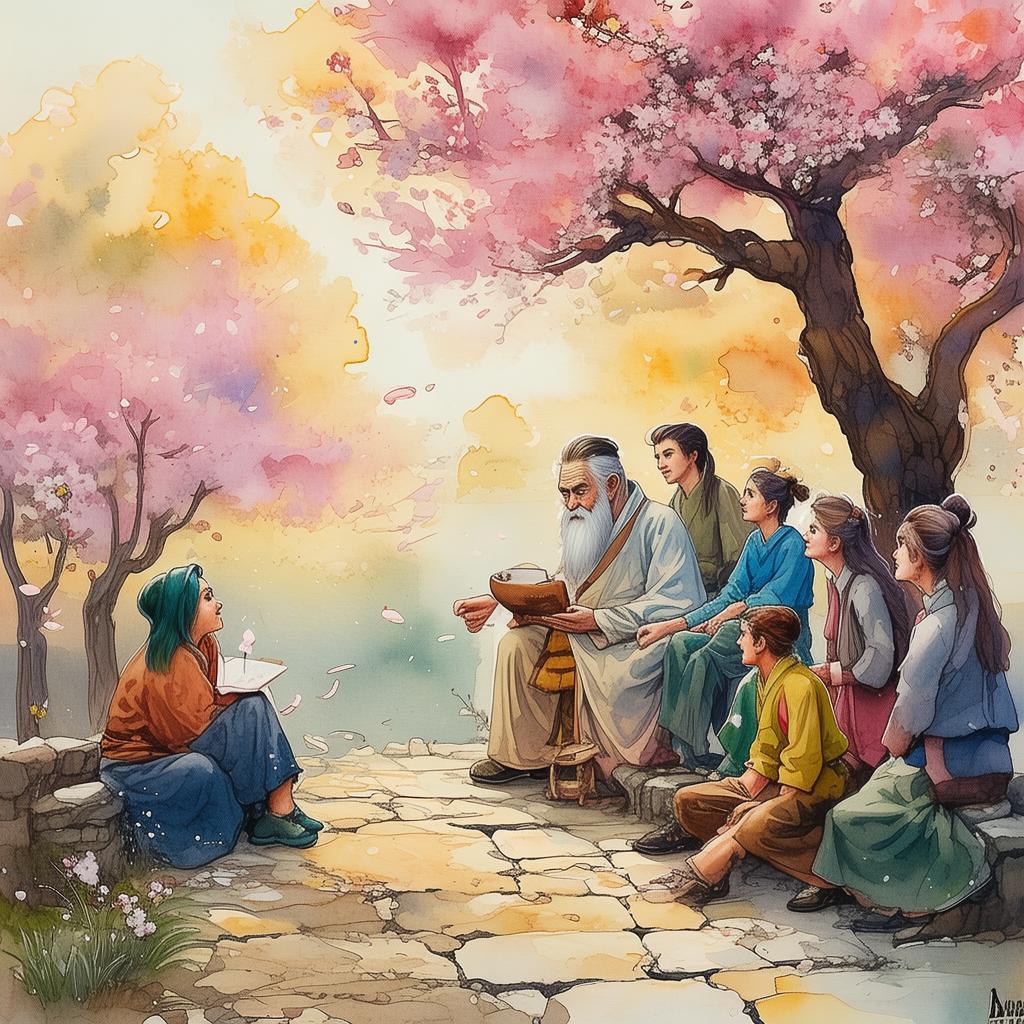
The following day, Lü found himself back in the ancient palace, the guqin in his hands once more. He played a melody that was a blend of the old and the new, a fusion that captivated the crowd. The emperor, who had been listening intently, approached Lü and asked him to play one more song.
Lü played a piece that was a composition of his own, a piece that combined the sounds of his guqin with the rhythms of the modern world. The crowd was entranced, their hearts swelling with the beauty of the music. The emperor smiled, his eyes reflecting the timeless truth that art has the power to unite people across the ages.
As the night drew to a close, Lü once again found himself in the modern world, back with Mei. They sat on the bench, the guqin and the guitar beside them, their hands moving in unison. The music they created together was a testament to the enduring power of love and the universal language of music.
The Bard's Melody: A Journey Through Time and Echoes of the Past is a story of the timeless power of art, of how music can bridge the gap between the ancient and the modern, and of the enduring connection between people across the ages.
✨ Original Statement ✨
All articles published on this website (including but not limited to text, images, videos, and other content) are original or authorized for reposting and are protected by relevant laws. Without the explicit written permission of this website, no individual or organization may copy, modify, repost, or use the content for commercial purposes.
If you need to quote or cooperate, please contact this site for authorization. We reserve the right to pursue legal responsibility for any unauthorized use.
Hereby declared.
